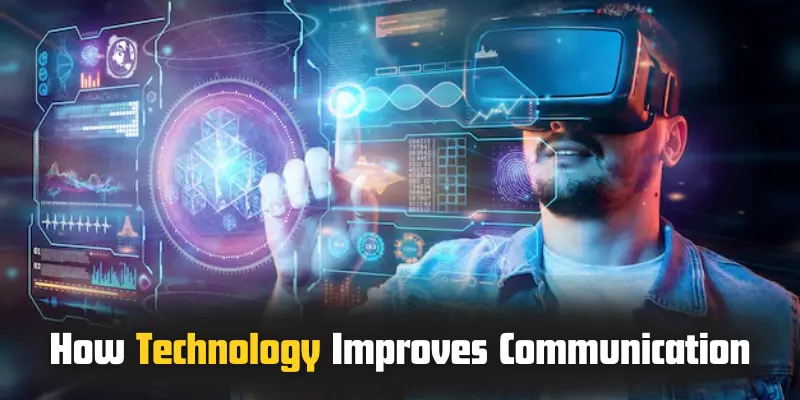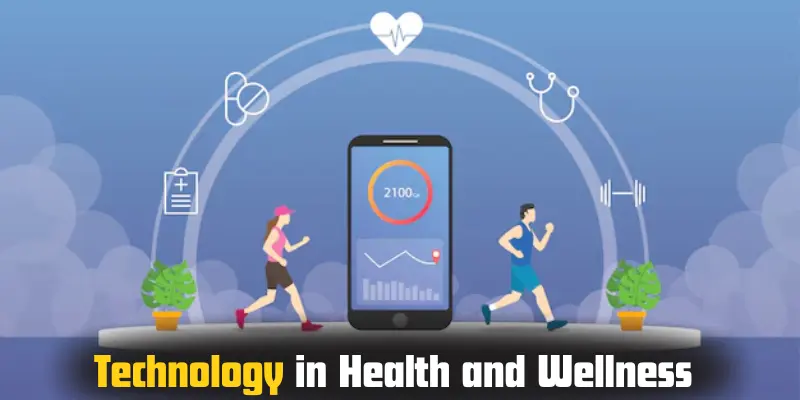Technology in Daily Life: How It Simplifies Your Routine
Published: 21 Feb 2025
Many of us feel overwhelmed by the constant presence of Technology in Daily Life. We check our phones for notifications, rely on smart devices to manage our homes, and depend on tech tools for work. But with all these advancements, it’s easy to feel like we’re losing control or becoming too dependent. How can we strike a balance and ensure technology enhances, rather than complicates, our daily lives?
Technology is all around us, shaping nearly every aspect of our daily lives. From the moment we wake up to the time we go to bed, technology plays a key role in making things easier, faster, and more connected. It impacts how we communicate, work, learn, and even relax. For instance, you probably use a smartphone every day, but have you ever stopped to think about how it helps you in so many ways? From waking you up with an alarm to checking your calendar, making a call, and even ordering your morning coffee – technology is always there, making life more convenient.
How Technology Improves Communication

Technology has made communication faster and easier than ever before. We can now stay connected with friends and family in ways that were unimaginable just a few decades ago. Here’s how:
Instant Messaging and Social Media
- Instant messaging apps like WhatsApp, Facebook Messenger, and Instagram let us chat with people instantly, no matter where they are in the world.
- Social media platforms, such as Facebook, Twitter, and Instagram, allow us to share updates, photos, and videos, keeping us connected even when we’re far apart.
- These tools help us stay in touch, share special moments, and keep up with the lives of others, all with just a few taps on our screens.
Example: Sending a quick text or posting a picture on Instagram helps you stay in the loop with your friends and family without any delay.
Video Calls
- Video calls have revolutionized how we connect with people, especially when distance is involved.
- Apps like Zoom, Skype, and FaceTime allow us to see the person we’re talking to, making conversations feel more real and personal.
- This is especially helpful for long-distance relationships, business meetings, and staying close with loved ones who live far away.
Example: Using Zoom to chat with a colleague or Skype to catch up with a friend brings you closer, even if you’re miles apart.
Tip for Healthy Communication
- Set time limits on social media and messaging apps to maintain a healthy balance between staying connected and spending time offline.
- Tip: Consider using features like “Screen Time” or “Focus Mode” on your phone to help reduce distractions and stay more present.
Technology in Work and Learning
Technology has completely transformed how we work and learn, providing new opportunities for flexibility and collaboration. Here’s a look at how it’s making a difference:
Remote Work Tools
- With the rise of remote work, businesses now rely heavily on technology to keep teams connected and productive from home.
- Tools like Slack, Microsoft Teams, and Google Drive make communication and collaboration seamless, even when team members are in different locations.
- These tools allow for instant messaging, video calls, file sharing, and project management, helping remote teams stay organized and on track.
Example: Using Slack for team chats, Google Drive to share documents, and Microsoft Teams for virtual meetings lets employees work together from anywhere, making remote work efficient and simple.
Online Education and E-Learning
- Technology has opened the door for students of all ages to access education at their own pace, from any location.
- Online platforms like Coursera, Khan Academy, and Duolingo offer a wide range of courses, from language learning to professional skills, all from the comfort of home.
- E-learning allows students to learn on their own schedule, making it easier to balance education with other responsibilities.
Example: Taking a course on Coursera to learn a new skill or using Duolingo to practice a language makes education accessible, flexible, and enjoyable.
Tip for Productivity
- Organize your workspace to stay productive when using remote tools. A clean, quiet area free of distractions can help you focus and complete tasks efficiently.
- Tip: Keep your desk organized, use noise-canceling headphones, and set specific times for breaks to boost your productivity while working from home.
Technology in Health and Wellness
Technology is helping us take better care of our health and wellness every day. From fitness trackers to health apps, here’s how technology is making it easier to stay healthy:

Fitness Trackers and Apps
- Wearable devices like fitness trackers help us monitor our daily activity, providing data on steps, heart rate, and even sleep quality.
- Devices like the Apple Watch or Fitbit sync with apps on your phone to track your progress, set goals, and keep you motivated.
- These devices give real-time feedback, helping you make healthier choices and encouraging an active lifestyle.
Example: The Apple Watch or Fitbit tracks your steps, heart rate, and sleep patterns, helping you stay on top of your fitness goals throughout the day.
Health Apps for Diet and Exercise
- Health apps make it easier to maintain a balanced diet and fitness routine by providing tools to track food intake and workouts.
- Apps like MyFitnessPal help you log your meals, monitor your calorie intake, and track your progress over time.
- Fitness apps provide personalized workout plans, helping you stay consistent and make the most of your exercise routine.
Example: MyFitnessPal tracks your daily food intake, while fitness apps like Nike Training Club offer easy-to-follow workout routines for all fitness levels.
Tip for Staying Motivated
- Set small, achievable health goals using fitness and health apps to help stay on track. This makes it easier to measure progress and maintain motivation.
- Tip: Focus on setting short-term goals, like increasing your daily step count or adding one more workout per week, to avoid feeling overwhelmed.
Smart Homes and Personal Assistance
Smart home technology is transforming the way we live, making everyday tasks easier, more convenient, and more efficient. Here’s how smart devices and personal assistants are enhancing home life:
Smart Devices in the Home
- Smart devices like smart speakers and thermostats make managing your home simpler and more efficient with just your voice or a tap on your phone.
- Gadgets like Amazon Alexa and Google Home allow you to control lights, adjust the thermostat, play music, or even check the weather, all hands-free.
- These devices can be linked together, creating a seamless, connected experience that helps manage your home more easily.
Example: With Amazon Alexa, you can turn off the lights at bedtime, adjust the temperature, and even ask for a weather update—all without moving a finger.
Personal Assistants
- Personal assistants, such as Siri and Google Assistant, help manage daily tasks by setting reminders, alarms, and even sending texts.
- These assistants can answer questions, give directions, and provide news updates, acting as a personal helper throughout the day.
- They also integrate with other apps and devices, making your daily routine smoother and more efficient.
Example: Asking Google Assistant to set an alarm for the morning or remind you of an appointment ensures you never forget important tasks.
Tip for Automating Tasks
- Try automating simple tasks like turning off lights at night or setting reminders for important events to make your daily routine more efficient.
- Tip: Automate regular tasks, such as adjusting your thermostat at specific times or setting an evening reminder to relax, to save time and energy.
Entertainment and Leisure
Technology has drastically changed how we enjoy entertainment and spend our leisure time. Whether it’s movies, music, or gaming, technology provides endless options for fun and relaxation. Here’s how:
Streaming Services for Movies and Music
- Streaming platforms like Netflix, Hulu, and Spotify have transformed how we access movies, TV shows, and music.
- These services allow us to watch or listen to what we want, whenever we want, without having to leave the house.
- With subscription-based services, there’s no need to worry about renting DVDs or buying albums anymore; everything is just a click away.
Example: Watching your favorite movie on Netflix or listening to a new playlist on Spotify is as easy as pressing a button on your phone or smart TV.
Online Gaming
- Gaming technology has made it possible for people to connect and compete with friends or strangers from all over the world.
- Whether it’s playing a fast-paced action game on your console or joining a mobile game with friends, gaming brings people together for fun and friendly competition.
- Many games also offer interactive experiences, where players can work together to complete challenges or explore virtual worlds.
Example: Playing a multiplayer game like Fortnite with friends or joining an online chess match lets you connect with others while having a good time.
Tip for Healthy Entertainment
- Use tech in moderation to avoid burnout. While it’s easy to get lost in streaming shows or gaming, balancing screen time with other hobbies is important for well-being.
- Tip: Set time limits for entertainment activities and make time for offline activities like reading, exercising, or spending time outdoors.
Conclusion
So guys, in this article, we’ve covered Technology in Daily Life in detail. As we’ve seen, technology plays a huge role in making our lives easier, from the way we work to how we connect with others. My personal recommendation is to choose the tech that truly benefits your routine and avoid distractions that may harm your productivity.
Start by simplifying your tech use today! Tell us how you plan to use tech to improve your day-to-day life—leave a comment below!
Frequently Asked Questions About Technology in Daily Life
Technology makes everyday tasks easier, faster, and more efficient. For example, smartphones help with communication, navigation, and managing schedules. Devices like smart home assistants automate tasks, making your home more convenient.
Common technologies include smartphones, laptops, and smart TVs. You also use technology in appliances like microwaves, fridges, and even washing machines. Social media, online shopping, and digital banking are other daily tech tools.
While technology offers convenience, overreliance can lead to less face-to-face interaction and physical activity. It’s important to find a balance by setting boundaries and using tech intentionally. Mindful use of technology ensures it enhances life rather than replacing essential experiences.
Use strong, unique passwords for each device or service and enable two-factor authentication. Regularly update software and apps to protect against security vulnerabilities. Be cautious about sharing personal information and avoid suspicious links or emails.
Yes, tools like task management apps, digital calendars, and collaboration platforms can help you stay organized. Automation tools can also save time by handling repetitive tasks. The key is choosing the right tools that align with your work style.
Technology makes learning more accessible through online courses, educational apps, and digital resources. Students and teachers can collaborate more easily with tools like video conferencing and cloud storage. It allows for personalized learning at one’s own pace.
You can connect through social media, messaging apps, and video calls. Email is still widely used for professional communication, while instant messaging allows for quick conversations. Social platforms also help you stay updated on events and trends.
While tech helps reduce waste through digital services, manufacturing electronics creates pollution and contributes to e-waste. However, advancements like renewable energy tech aim to reduce environmental impact. Sustainable practices like recycling tech devices help minimize harm.

- Be Respectful
- Stay Relevant
- Stay Positive
- True Feedback
- Encourage Discussion
- Avoid Spamming
- No Fake News
- Don't Copy-Paste
- No Personal Attacks

- Be Respectful
- Stay Relevant
- Stay Positive
- True Feedback
- Encourage Discussion
- Avoid Spamming
- No Fake News
- Don't Copy-Paste
- No Personal Attacks



